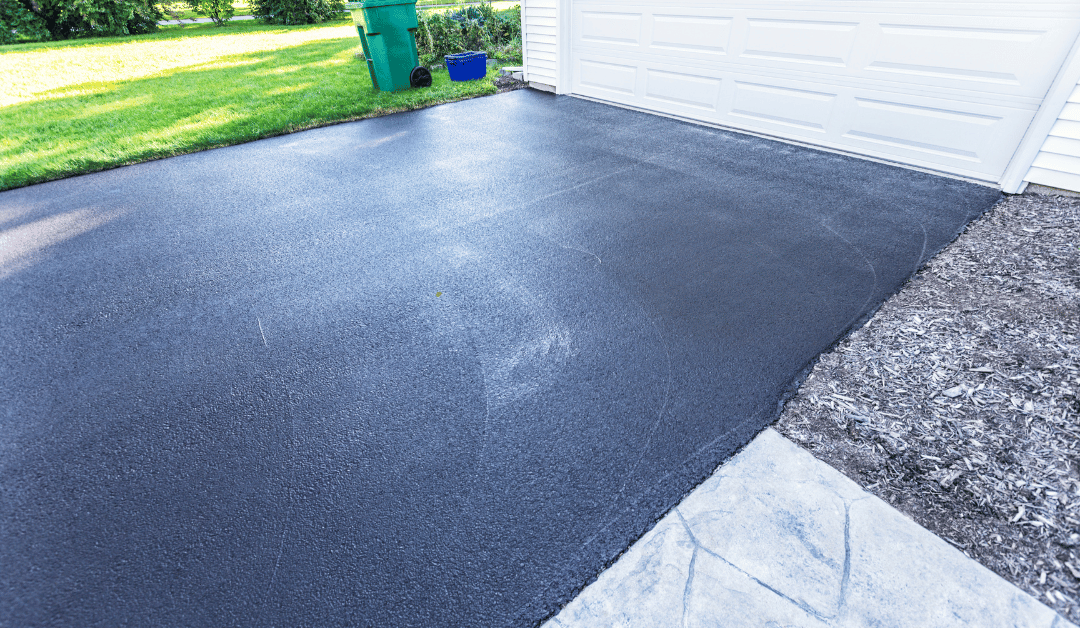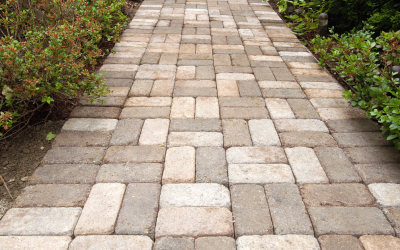The most important factor to consider when installing a new driveway is thickness. It will often be the difference that separates a driveway that withstood several storms and one that collapses after the first bout. Concrete is one of the most common materials used in driveways in Melbourne because it lasts for a long time and requires minimal maintenance. But the real magic comes from how thick the concrete is, built a layer deeper. To ensure your driveway can take anything-from your everyday family car to that occasional delivery truck-you’ll want to know more than just how to lay a slab. All the requirements to renew or replace driveways are available here if one desires to renovate their residential property.
Understanding Thickness For Driveways
If you want your concrete driveway in Melbourne to last for years, then you need to know how thick to pour the concrete slabs. Concrete slabs should be at least 10 centimeters thick according to Australian Standards. The expansion of concrete due to solar exposure may cause cracking and breaking hence this thickness is required. Problems are more likely with thinner slabs, which may result in expensive fixes later on.
Concrete expansion joints are recommended to make concrete slabs even stronger. With these expansion joints, the slab could very well be able to bear the expansion and contraction of the concrete without cracking. Few factors determine a concrete slab’s strength like base preparation and mix design, curing plus the right joint location.
The main aim of base preparation is to ensure that the concrete slab rests on a firm and stable base. This would be achieved through compacting the soil and doing the proper drainage work. Suitable mix design using quality cement, aggregates, and water in the right proportion will contribute to achieving the desired strength and durability. Correct curing procedures, such as keeping the slab wet and avoiding high temperatures, would be the final step for ensuring optimal slab performance.
What is the best strength in terms of MPa for a driveway?
For most residential driveways, the ideal range is 25 to 32 MPa in megapascals. That strength is sufficient for most residential driveways but more than sufficient for what your concrete slab will have to bear – regular foot traffic, plus the odd large vehicle. To prolong the life of concrete slabs in heavily used areas, such as a garage, the strength should be raised to 32 MPa. A driveway slab should be not less than 100 mm but not more than 125 mm for greater durability. Protect your driveway from damage caused by cracking and maintain its new appearance with steel reinforcement, such as wire mesh or rebar. With vibratory plate compactors and proper drainage, there was the possibility that standing water and soft patches may be avoided.
Also Read: What’s the Best Material for My Driveway?
Advantages of Driveways Made of Concrete
- They are very durable, and with the right care, they can last for up to 30 years or more.
- While asphalt wears down very fast due to lubricants and gasoline, concrete does not have such vulnerabilities and therefore does not require sealing frequently.
- Concrete can enhance a house’s visual appeal.
- You will require fewer external lights on concrete since it reflects more light compared to darker materials.
Disadvantages of Concrete Driveways
- Concrete is more expensive to install when newly laid compared to asphalt.
- The added special finishes and colors may also make the concrete costlier.
- Although concrete is very durable, it might crack with time and especially in cases where the base is not well-laid or areas subjected to extreme conditions.
- Since concrete is permeable, it might absorb stains resulting from oil, paint, among many other leakages and thus require pressure washing or alternative cleaning techniques.
Homeowners in Melbourne can meet their aesthetic needs and practical demands better by installing the appropriate type of driveway after they have an understanding of the various types, their benefits, and the problems associated with each.
How much thickness should a concrete driveway have in Melbourne?
An adequate thickness for residential driveways is typically 100 mm or 10 cm, a common minimum for the industry, while to allow greater loads, including trucks or RVs, use 125-150mm. A few considerations go into the recommended thickness: If the soil side is more unstable, you should consider a thicker slab. You would want a thicker driveway for heavier weights. Severe heat waves may require supplemental cooling systems. Always verify you comply with local building codes. Install a 50 mm thickness of gravel or well-compacted granular material beneath the slab to prevent pooling and assist with draining. Ensure concrete is level before laying down. It should always be in excellent condition, ready to face any situation. To keep doing so, strictly adhere to local building requirements that usually involve minimum codes.
Conclusion
The key to a sturdy and long-lasting permeable concrete driveway is careful planning, including determining the appropriate thickness, reinforcing where necessary, and arranging for adequate drainage. Make sure the drainage is perfect, add steel reinforcement, and choose the correct thickness according to the load and soil conditions.Get personalized guidance and make sure your driveway is both aesthetically pleasing and structurally sound by consulting a professional in the field of civil engineering or building. If you follow these guidelines, your investment will increase your home’s value and functionality.









0 Comments